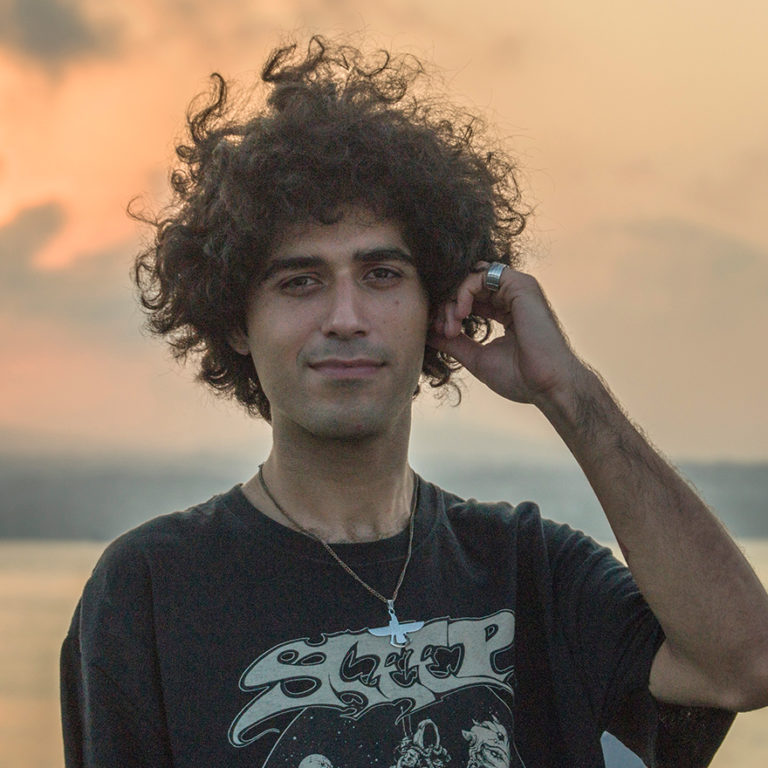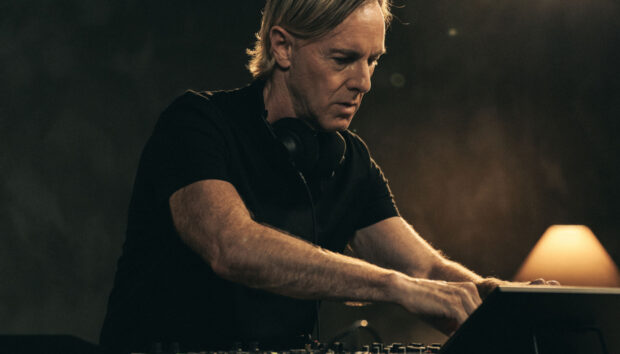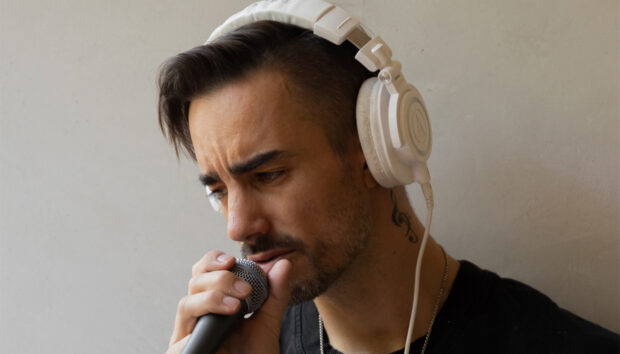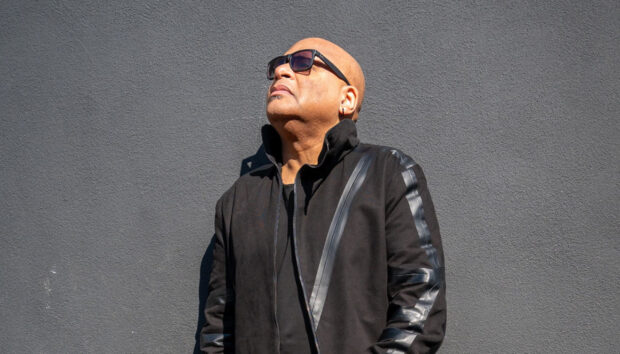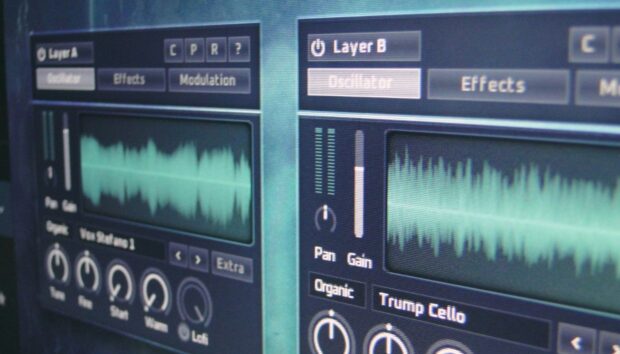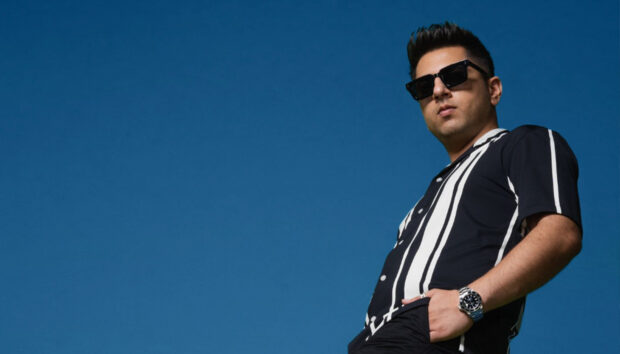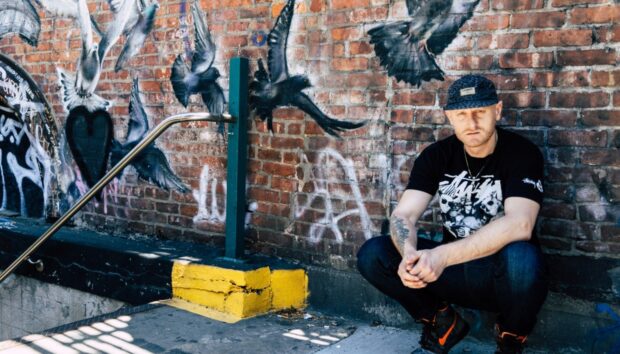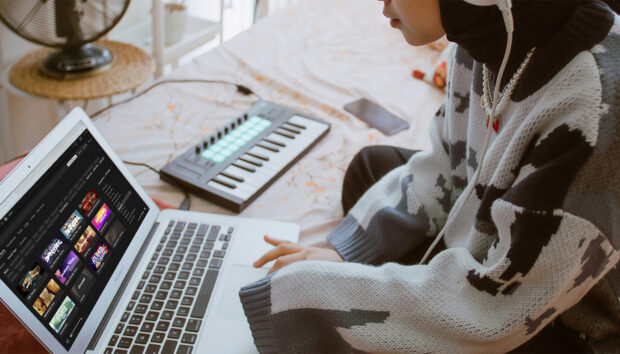Sami Baha grew up in Istanbul listening to an eclectic mixture of Turkish, hip hop and electronic music. Now residing between Istanbul and London, the vibrant cultures of the two capital cities combine to inform his unique take on composition and production. Native Instruments spoke to Baha about his influences, musical style and using DISCOVERY SERIES: MIDDLE EAST to create a track.
Check out DISCOVER SERIES: MIDDLE EAST here.
How did you become involved in music and production?
When I was growing up in Turkey in the 1990s I was a very musical child – my mother says I used to watch the birds flying and sing melodies while I watched them. And of course I listened to a lot of pop music but a little later I came across rap music. A lot of people in my neighborhood who were a little older than me were listening to really great hip hop – boom bap, even some techno and other mixed genres. They blasted it from their cars and although we were younger we would always hear it and we thought it was cool.
When I was around 15 or 16 I started to rap and go to freestyle parties – there wasn’t a big audience for it at that time but we’d battle other MCs and I would write rhymes. I’d always try to find instrumentals and other backing tracks from different websites and rap over them. There were some great Turkish rappers around, and people were beginning to pay attention to them.
So you started off as a rapper, but then moved into production.
That’s right – I was constantly trying to find good instrumentals to rap over but I wasn’t always happy with what I found. So I decided to make my own. I downloaded Fruityloops and started to use it. At the same time a lot of my friends were burning me CDs of electronic music like The Chemical Brothers, Kraftwerk and those kinds of bands and those styles started to influence me so I started to make beats that sounded like them. As time went on I started to rap less and produce more because production was more of an unknown area to me, and so more interesting.
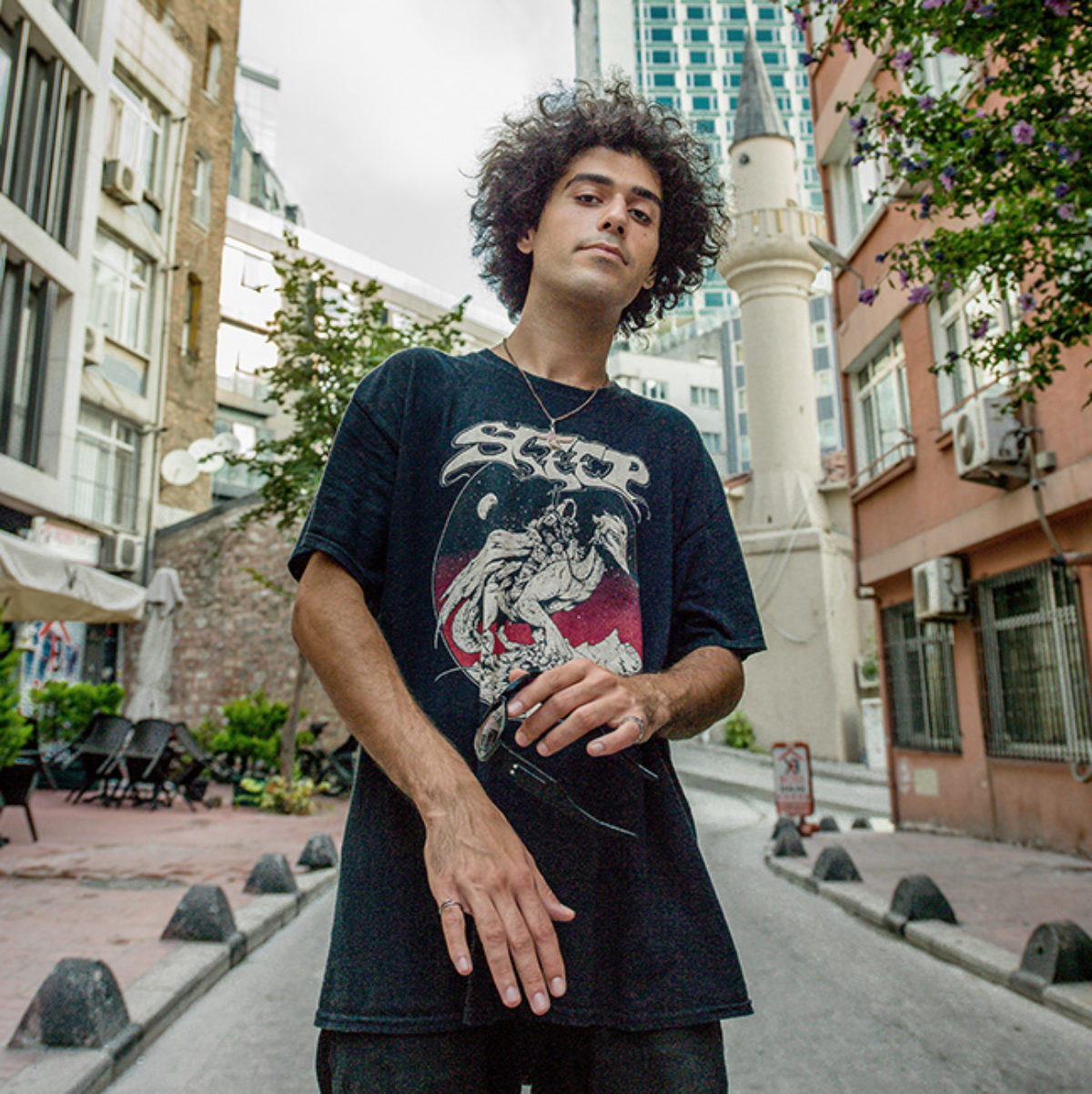
You didn’t start with an instrument like a piano or guitar?
No. When I was young my grandmother had an old Casio keyboard that I used to play a little. You could make drums and sound effects like thunder or rain on that – which you could say was a starting point in terms of going on to produce later in life. I didn’t take it too seriously at first, and although I was making music for a while I didn’t actually release any music until about 2010.
After those early experiments and starting to move from rapping to production, what was the next step in terms of the gear you used and the techniques you learned?
Some friends and I used to rent some studios an hour or so outside of Istanbul and make live music. I played electric guitar, and the whole live band experience helped to focus my mind and made me take things more seriously. I’m not a great guitar player but I started recording guitar into Fruityloops and experimenting with what was possible.
What does your production setup look like these days?
I have used most of the industry DAWs but I’m still most at home in FL Studio (which evolved from Fruityloops). I find it easy to work with loops there because it’s not necessarily based on recording long takes. It’s like a playground! So I turned back to it about five years ago and I’m still using it to write music.
In terms of other soft synths I use Absynth quite a lot, especially for its ambient sounds and I find it really easy to create my own textures with it. I also use Retro Machines. I used to make a lot of RnB and it came in really handy for that. In terms of the music I’m making now, Discover Series: Middle East has been a great help and it brings some new and unique sounds to what I’m doing. It sounds “real”. Those kinds of traditional instruments are really hard to find in a playable format, a lot of them can sound artificial. And I don’t want to sample loops because I have sampled enough in the past, and I can write melodies myself. On my album I only have one song with a sample in it.
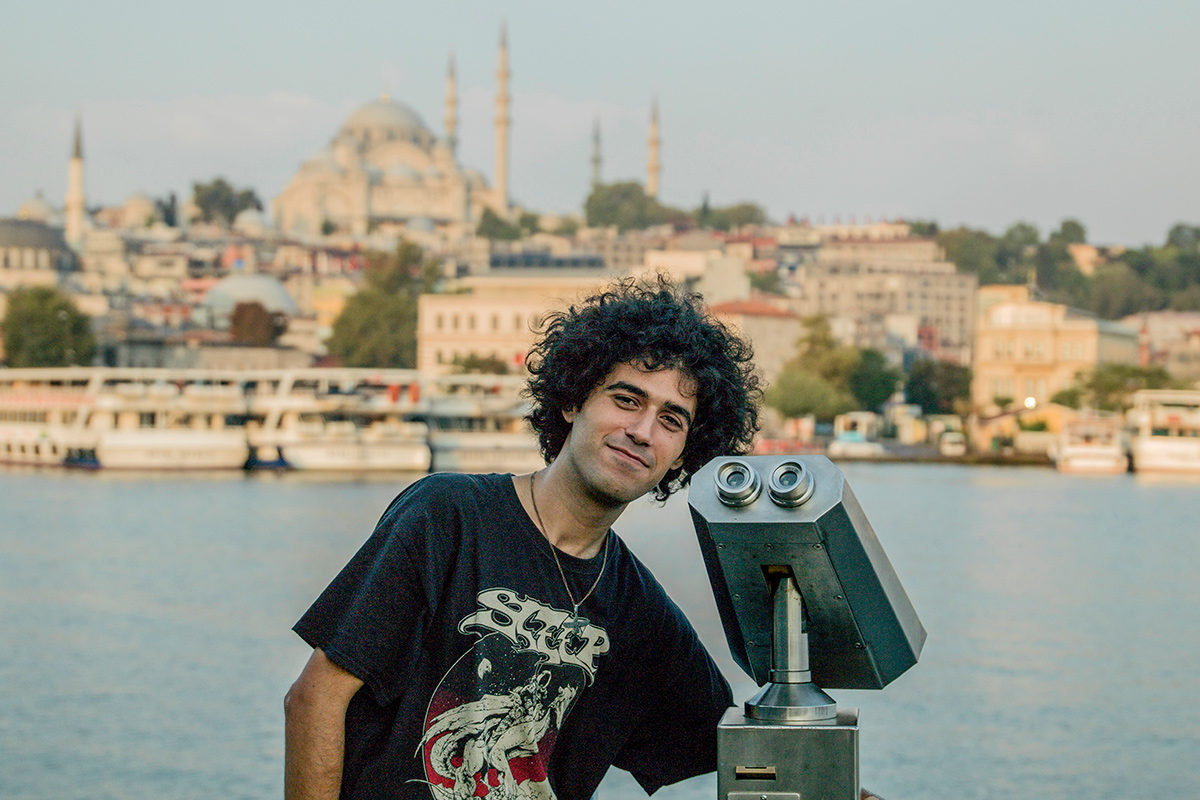
So you work mostly in the box? What kind of MIDI controllers do you use?
Yes – pretty much in the box. I have a small two-octave MIDI keyboard but sometimes I even use the computer keyboard to write melodies. In FLS that’s a pretty flexible way of working. I don’t stick to any one particular controller when I write.
It’s more common now for people to just use whatever feels right at the time, rather than sticking rigidly to one DAW for example, which most people used to do. Do you use any mobile apps for music?
Exactly. I tried Ableton Live but the layout just freaked me out. I tried FL Studio Mobile too but I didn’t really tune into it to be honest. But I do have some apps and plugins on my phone that I do play with. Most of the time though I prefer to be in my studio where I can focus properly on work. My focus gets lost so easily so I can’t really work on the go – I have to be in the zone.
You have composed a track with MIDDLE EAST. How many authentic sounding Turkish and middle east-themed software instruments are on the market, that you know of?
In the past I have mostly used my MIDI archive and SoundFont collection – until I got the Middle East instrument I didn’t really use bigger virtual instruments. But I found it very easy to use. Other software instruments I’ve tried didn’t sound particularly natural but with this one I was able to work quickly. It only took two days – one day to write the track and one to mix it. I mostly used the Baglamas and the other instruments that are similar to guitars because that’s closer to my style. I hadn’t tried to sample these kinds of instruments before but the Middle East instrument opens up opportunities to work with them easily. It sounds like it’s really being played. I didn’t have to do a lot of tweaking to the instruments to get them to sound good.
How does living between Istanbul and London inform your music?
I like going to new locations and writing music so whenever I’m in either city or travelling I like to try to find a closed space and write something. When I was writing my album in London I was working on it for a long time. After I finished that I came to Istanbul for a holiday and that’s where I wrote this track using the Middle East instrument, when I was in a kind of a holiday mood. I think that definitely inspired the song.
When I’m in London I might go to the park and hear all kinds of music being played by all the different people – Caribbean, Latino and all sorts. So I think my album reflects all the different sound I’ve heard and processed. And when I’m in Turkey I’ll often come up with very different material. For example it’s not unusual to find tracks with a minute of instrumental intro, where the vocals take a while to come in. Arrangements tend to be more complex in Turkish music. But of course there’s crossover between influences from both places. I’m kind of a workaholic so I can’t stop working most of the time anyway.
I do still listen to older Turkish music from the 60s and 70s and I think we have a musical memory – we pick up old melodies. So when I work with Middle East it makes a connection with that. I can take a melody from my brain and get it down onto a track.
When you were working with the Middle East instruments, were there any particular MIDI tricks you used for things like pitch bends or different scales?
I changed the programming a little in terms of the MIDI patterns I used. With the Oud and Baglama instruments I tried to make sure the melodies were properly arranged for maximum impact. I’m always trying to create spaces for the beats to drop. Half of my work is creating melodies and the other half is finding the right spaces to fit them into.
When you mix, do you tend to stick to FLS’ own plugins or do you have other gear you turn to?
I don’t use external hardware but I do check my mixes on lots of different setups. I have four pairs of headphones, I use my friend’s car, laptop speakers and things like that. I try to listen on as many systems as I can and I think that’s the best way to work.
What’s coming next for you?
I have a lot of music that I have made but that never got released – so as well as working on new stuff I have to find a way of getting that all together and releasing it!
DISCOVERY SERIES: MIDDLE EAST is included in KOMPLETE 12, available October 1.
photo credits: Umur Dilek








